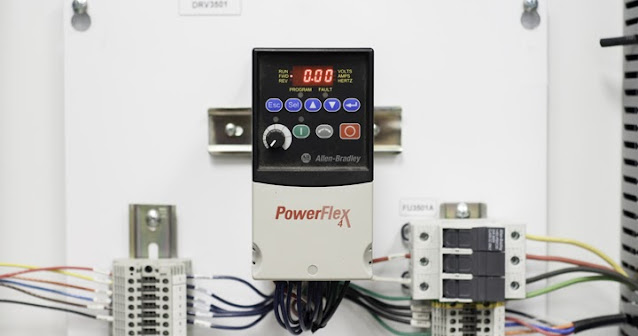What is a variable frequency drive?
 |
| Variable Frequency Drive Market |
A variable frequency drive (VFD) is a type of motor
controller that controls the frequency and voltage of an electric motor's power
supply. The VFD can also control the motor's ramp-up and ramp-down during start
and stop, respectively.
Despite the fact that the drive regulates the frequency and
voltage of the power supplied to the motor, we commonly refer to it as speed
control because the outcome is a change in motor speed.
The global variable
frequency drive (VFD) market is estimated to be valued at US$ 18,878.1 million in 2021 and is expected to exhibit a
CAGR of 8.4% over the forecast
period (2021-2028).
There are many reasons why we may want to adjust this motor
speed.
For example, to
Conserve energy and boost system performance.
In hybridization applications, convert power.
Match the drive's speed to the process's requirements.
Match a drive's torque or power to the process needs.
Enhance your working atmosphere.
Reduced noise levels, such as from fans and pumps
Machines' lifetimes can be extended by reducing mechanical
stress.
Reduce peak usage to avoid peak-demand pricing and the size
of the required motor.
Furthermore, today's drives include networking and diagnostic
features, allowing for higher performance and productivity. So, in every
motor-driven system, energy savings, intelligent motor control, and a reduction
in peak-current drawn are three excellent reasons to use a VFD as the
controller.
VFDs are most commonly used to control fans, pumps, and
compressors, with these applications accounting for 75% of all drives in use
worldwide. Other, less sophisticated types of motor controllers include soft
starters and across-the-line contactors. A soft starter is a solid-state device
that allows an electric motor to ramp up to full speed gradually during
startup. An across-the-line contactor is a form of motor controller that
supplies an electric motor with the entire line voltage.



Comments
Post a Comment